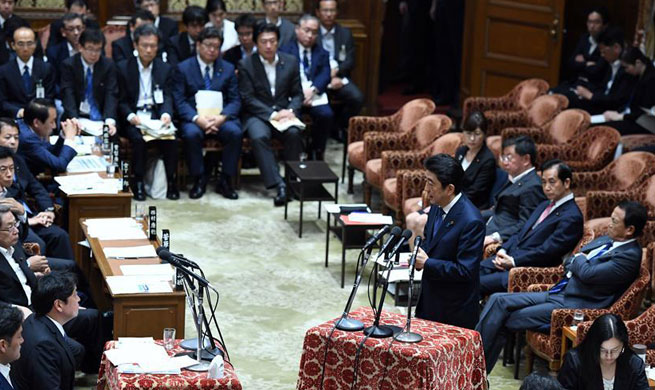WASHINGTON, July 24 (Xinhua) -- Small reductions in childhood measles vaccinations in the United States could cause "disproportionately large increases" in the number of measles cases and in related public health costs, a new study said Monday.
A five-percent drop in the number of children aged two to 11 vaccinated against the measles, mumps and rubella (MMR) would triple the number of annual measles cases in this age group, according to the study published in the U.S. journal JAMA Pediatrics.
The additional measles cases would increase annual public health expenditures by at least 2.1 million U.S. dollars, or 20,000 dollars per case of measles, it found.
"I think our study is a wake-up call for what we can expect in the coming months and years as vaccine coverage rates continue to decline in the 18 states that now allow non-medical or philosophical belief exemptions," said senior author Peter Hotez, dean of the National School of Tropical Medicine at Baylor College of Medicine.
Currently, children in all 50 U.S. states can be exempted from vaccination for medical reasons prior to enrollment in elementary school or day care.
In addition, all but three states allow parents to decline vaccination for religious reasons, and 18 states have exemptions for personal beliefs.
As a result, there is growing vaccine hesitancy -- defined as a delay or refusal to accept vaccination based on personal beliefs despite availability -- in the country.
Based on data from the U.S. Centers for Disease Control and Prevention, the new study constructed a mathematical model to predict the effects of declining vaccination rates in children aged two to 11.
"We focused on measles as a case example of the effects of declining vaccine coverage because it is highly infectious," said Nathan Lo, the study's lead author and a student at Stanford University School of Medicine. "It's likely to be the first infectious disease causing outbreaks if vaccination declines."
Vaccination has been successful at controlling measles in the United States, but a few dozen to a few hundred cases occur here every year, usually when U.S. citizens travel abroad and unknowingly bring the virus home.
Infected people can spread the virus by sneezing and coughing for four days before they show symptoms.
Measles lingers in the air and remains infectious for up to two hours, an unusually long time for an airborne virus, and a high percentage of unvaccinated people exposed to the infected air become sick themselves.

















